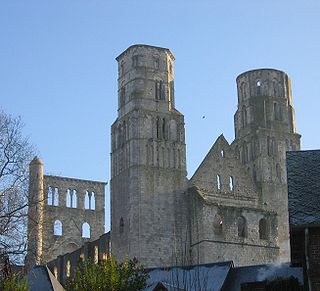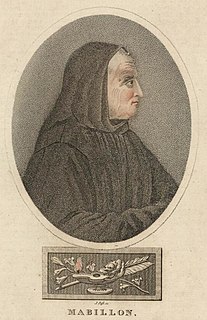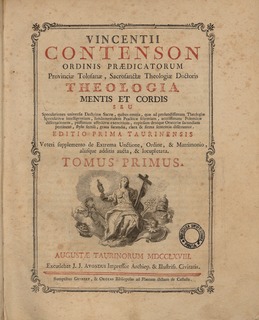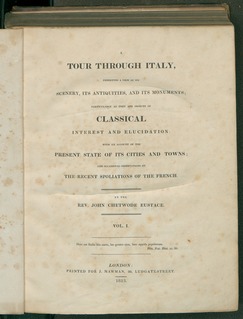René Massuet (13 August 1666 – 11 January 1716) was a French Benedictine patrologist, of the Congregation of St. Maur. [1]
He was born at St. Ouen de Mancelles in the diocese of Évreux, and made his solemn profession in religion in 1682 at Notre Dame de Lire, and studied at Bonnenouvelle in Orléans, where he showed more than ordinary ability. After teaching philosophy in the Abbey of Bec, and theology at St. Stephen's, in Caen, he attended the lectures of the University and obtained the degrees of bachelor and licentiate in law.

Orléans is a prefecture and commune in north-central France, about 111 kilometres southwest of Paris. It is the capital of the Loiret department and of the Centre-Val de Loire region.

Caen, is a commune in northwestern France. It is the prefecture of the Calvados department. The city proper has 108,365 inhabitants, while its urban area has 420,000, making Caen the largest city in former Lower Normandy. It is also the third largest municipality in all of Normandy after Le Havre and Rouen and the third largest city proper in Normandy, after Rouen and Le Havre. The metropolitan area of Caen, in turn, is the second largest in Normandy after that of Rouen, the 21st largest in France.
After this he taught a year at Jumièges and three years at Fécamp. He spent the year 1702 in Rome in the study of Greek. The following year he was called to St. Germain des Prés in Paris and taught theology there to the end of his life.

Jumièges is a commune in the Seine-Maritime department in the Normandy region in north-western France.

Paris is the capital and most populous city of France, with an area of 105 square kilometres and an official estimated population of 2,140,526 residents as of 1 January 2019. Since the 17th century, Paris has been one of Europe's major centres of finance, diplomacy, commerce, fashion, science, and the arts.
His principal work, which he undertook rather reluctantly, is the edition of the writings of St. Irenaeus, Paris, 1710. An elegant edition of these writings had appeared at Oxford, 1702, but the editor John Ernest Grabe was less intent on an accurate rendering of the text than on making Irenaeus favour Anglican views. Massuet enriched his edition with valuable dissertations on the heresies inpugned by St. Irenaeus and on the life, writings, and teaching of the saint.

Irenaeus was a Greek bishop noted for his role in guiding and expanding Christian communities in what is now the south of France and, more widely, for the development of Christian theology by combatting heresy and defining orthodoxy. Originating from Smyrna, now Izmir in Turkey, he had heard the preaching of Polycarp, who in turn was said to have heard John the Evangelist.

John Ernest Grabe, Anglican divine, was born at Königsberg, where his father, Martin Sylvester Grabe, was professor of theology and history.
He also edited the fifth volume of the Annales Ordinis S. Benediciti, of Jean Mabillon, with some additions and a preface inclusive of the biographies of Mabillon and Thierry Ruinart. We owe him, moreover, a letter to John B. Langlois, S.J., in defence of the Benedictine edition of St. Augustine, and five letters addressed to Bernard Pez found in J. G. Schelhorn's Amoenitates Literariae. He left in manuscript a work entitled Augustinus Graecus, in which he quotes all the passages of St. John Chrysostom on grace.

Dom Jean Mabillon, O.S.B., was a French Benedictine monk and scholar of the Congregation of Saint Maur. He is considered the founder of the disciplines of palaeography and diplomatics.

Dom Thierry Ruinart (1657–1709) was a French Benedictine monk and scholar. He was a Maurist, and a disciple of Jean Mabillon.
Prevenient grace is a Christian theological concept rooted in Arminian theology,. It is divine grace that precedes human decision. In other words, God will start showing love to that individual at a certain point in his lifetime.




